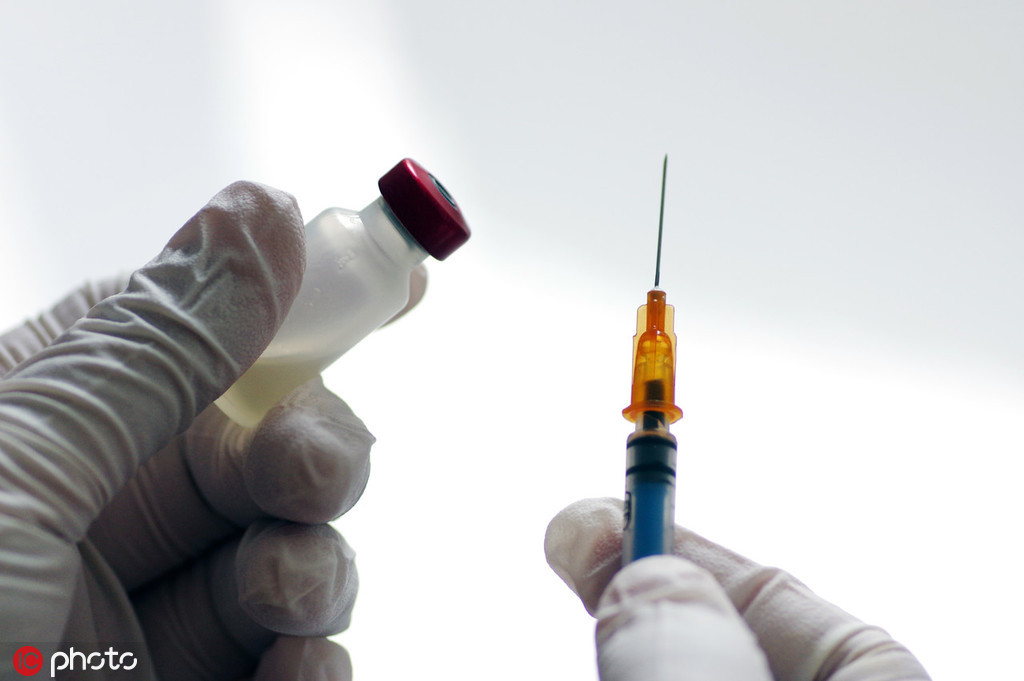
[Photo/IC]
HONG KONG - A study jointly done by the Hong Kong Polytechnic University (PolyU) and the Macao University of Science and Technology (M.U.S.T) found that a recombinant vaccine can induce high level of antibodies in animals with no obvious side effects, PolyU announced on Monday.
At the most critical step during infection, SARS-CoV-2, the virus that causes COVID-19, uses its spike protein receptor-binding domain (S-RBD) to engage with the host cell receptor angiotensin-converting enzyme 2 (ACE2), according to PolyU.
Kang Zhang, a professor from the Faculty of Medicine of M.U.S.T, said that the recombinant vaccine they developed can block protein receptor-binding domain binding to ACE2 expressed on the cell surface safely and effectively, thus preventing the infection of SARS-CoV-2.
Johnson Lau, adjunct professor of the Department of Applied Biology and Chemical Technology of PolyU, said that after inoculating animals including mice, rabbits and monkeys with the recombinant vaccine, all the animals could produce a high level of antibodies without showing obvious side effects.
More studies, however, are needed to see how long the antibodies last, Lau said, adding that clinical trials can begin in a few weeks at the earliest.
"The biotechnology method used in creating the recombinant RBD vaccine is mature and feasible in aiding mass vaccine production. It is expected to provide a practical solution to fight against COVID-19," Lau said.
The findings have been recently published in science journal Nature.


